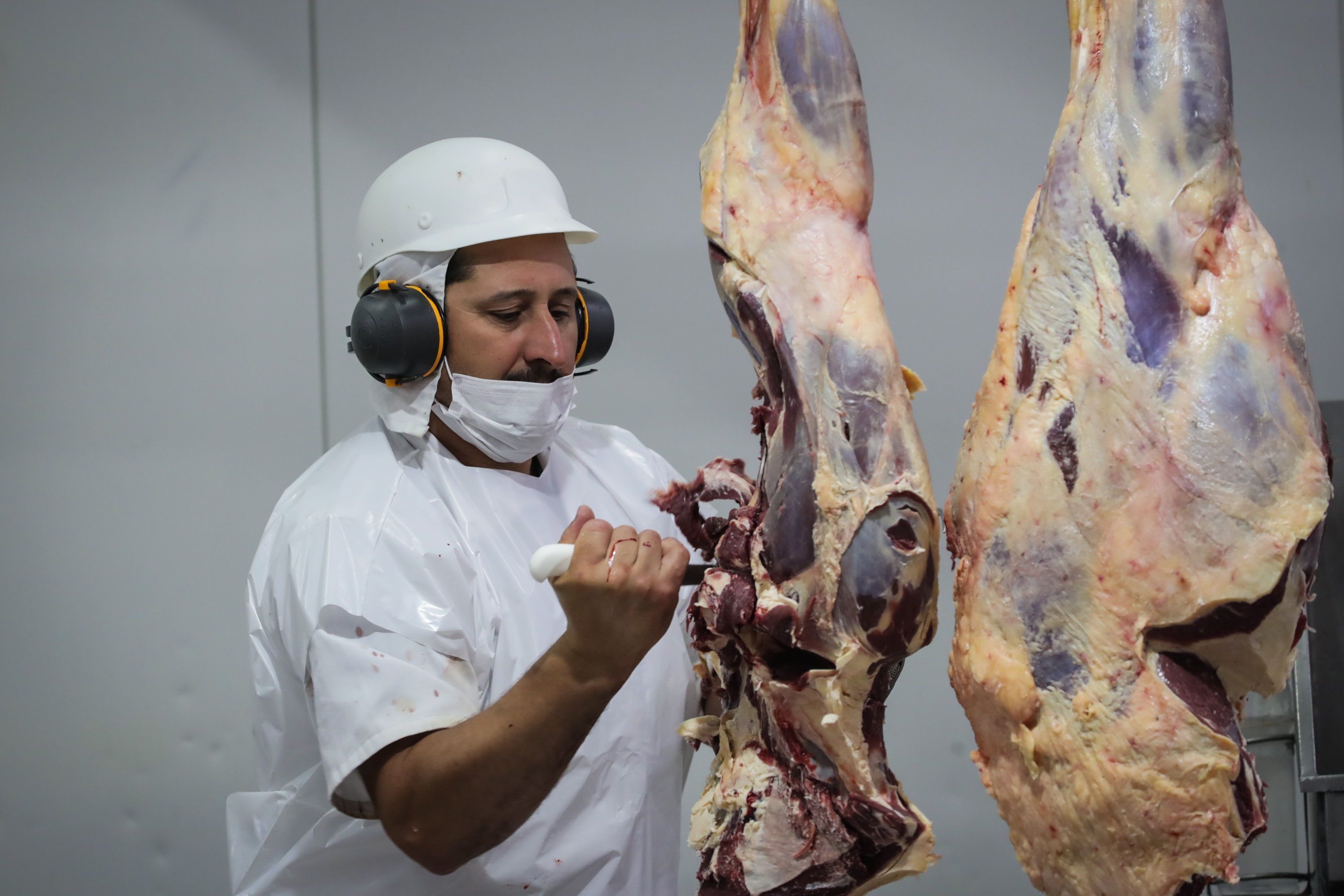
Faced with the commitment of the meat industry in Uruguay to freeze the latest price list for the products it sells, the government decided to analyze a decrease in the VAT tax on roast, the most consumed cut of meat by Uruguayans. The increase appeared in a context where Uruguay, whose main export product is meat, faces declining sales due to the war with Ukraine.
On March 9, Luis Lacalle Pou announced that Uruguay will not establish a “price fix” to contain increases in certain foods due to the conflict. However, the country is looking for new suppliers of fertilizers. As a livestock and agricultural country and having Russia and Ukraine as sellers of this product, all products related to these areas are experiencing increases in their price list.
“For the peace of mind of consumers and operators in the chain, the refrigeration industry is committed to freezing the price of meat on the bone for a month and, at the same time, the government is studying and today is going to make the decision, it is on the table of the President of the Republic, to be able to lower the VAT on roast during the same period (one month),” said Conrado Ferber, president of the National Meat Institute, at the Informativo Carve.
“We hope that the public will get a roast that is below $230″ a kilo,” he said. About 230 Uruguayan pesos is approximately 5 US dollars. Achieving that price implies a commitment that, according to Ferber, “is not difficult to make.” In the event that the reduction of VAT for this product is approved by the government, it is intended that “respect the agreement” be “respected” in order to favor the population.
Ferber said that the “real increase in meat in recent weeks” was less than that announced by the Meat Sellers Union last week in the newspaper El País. According to this institution, the price had risen 25% since January.
“The meat rose, but let's not talk about 25% because it seems to me that it is throwing a bomb that is not such,” declared the chief and emphasized that “it is easy to throw figures and in short, from when, from what cut...” He considered that in the context of the war in Ukraine, there are people who “get on the bandwagon actors who see an opportunity, which is legal, but it confuses people”.
According to the December 2021 price lists “in refrigerators ironed, in short, the meat that comes out of the refrigerator” the increase in the final price of roast was “from 3% to 4%” compared to the lists of March 2022. He also clarified that the average had a greater increase of 10%, but not the 25% previously declared.

According to Ferber, these values can be easily verified because the price lists “are in the hands of the butchers and there is no way to hide the information”.
Prior to the announcements from the meat sector and the government, “butchers were announcing new increases in the short term, making futurology,” Ferber said, adding that “commitment is needed” for this cut of meat to reach the consumer with the measures installed.
He questioned: “Do we want it to come cheap and good to the population or not?” and declared that “we all know each other, and we know that the roast arrives, we get the tip of low quality we sell it as part of the agreement and the rest comes out with another price”.
In that context, he asked consumers to be very demanding and clarified that the goods “will be” since the National Meat Institute will be controlling “that the volumes of that roast come out of the refrigerators”. The area that is most difficult for the institution to control is the price that is placed “butcher for butcher shop” because this is the last transaction before it reaches the consumer's hands.
KEEP READING:
Últimas Noticias
Debanhi Escobar: they secured the motel where she was found lifeless in a cistern

The oldest person in the world died at the age of 119

Macabre find in CDMX: they left a body bagged and tied in a taxi
The eagles of America will face Manchester City in a duel of legends. Here are the details

Why is it good to bring dogs out to know the world when they are puppies




